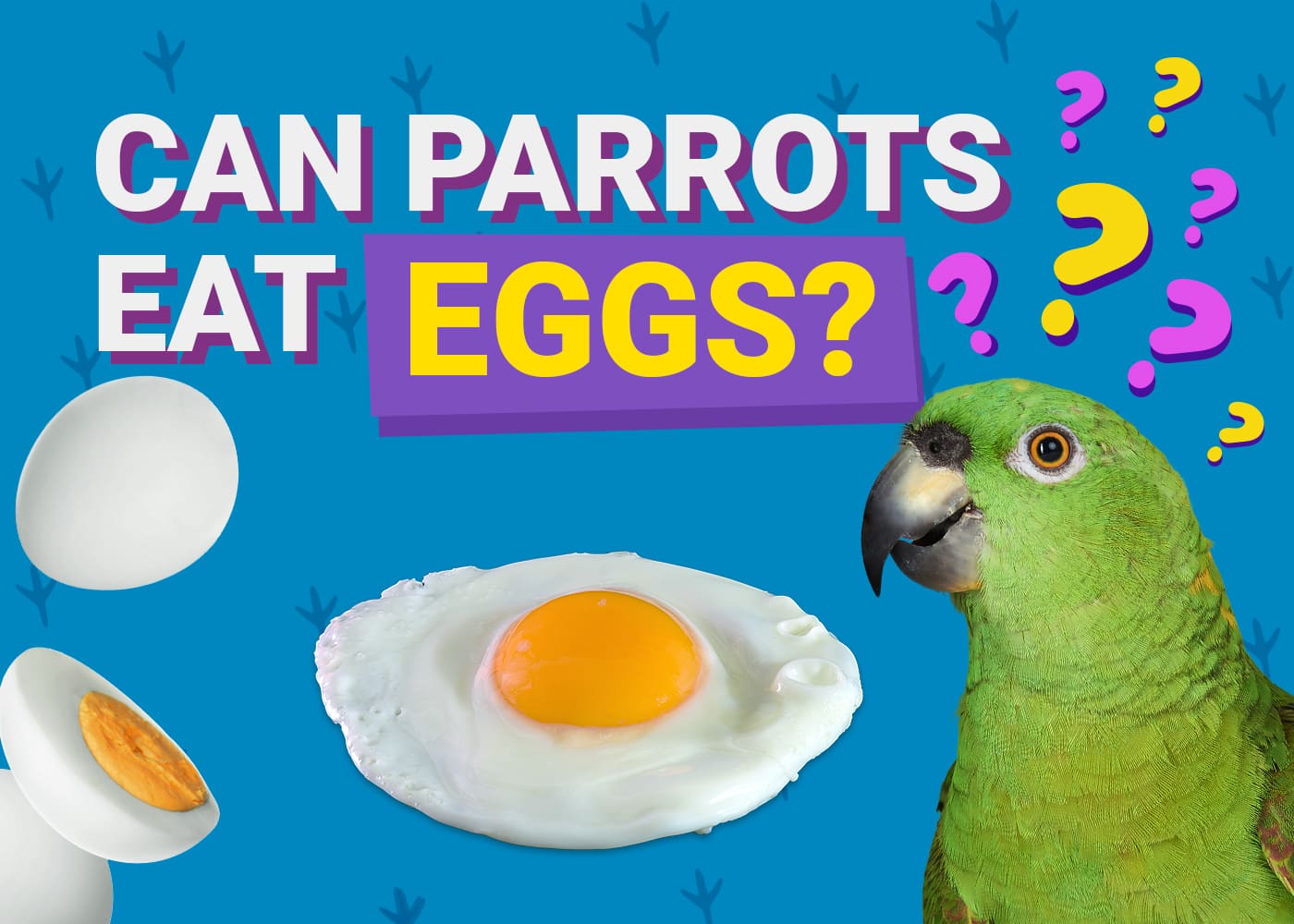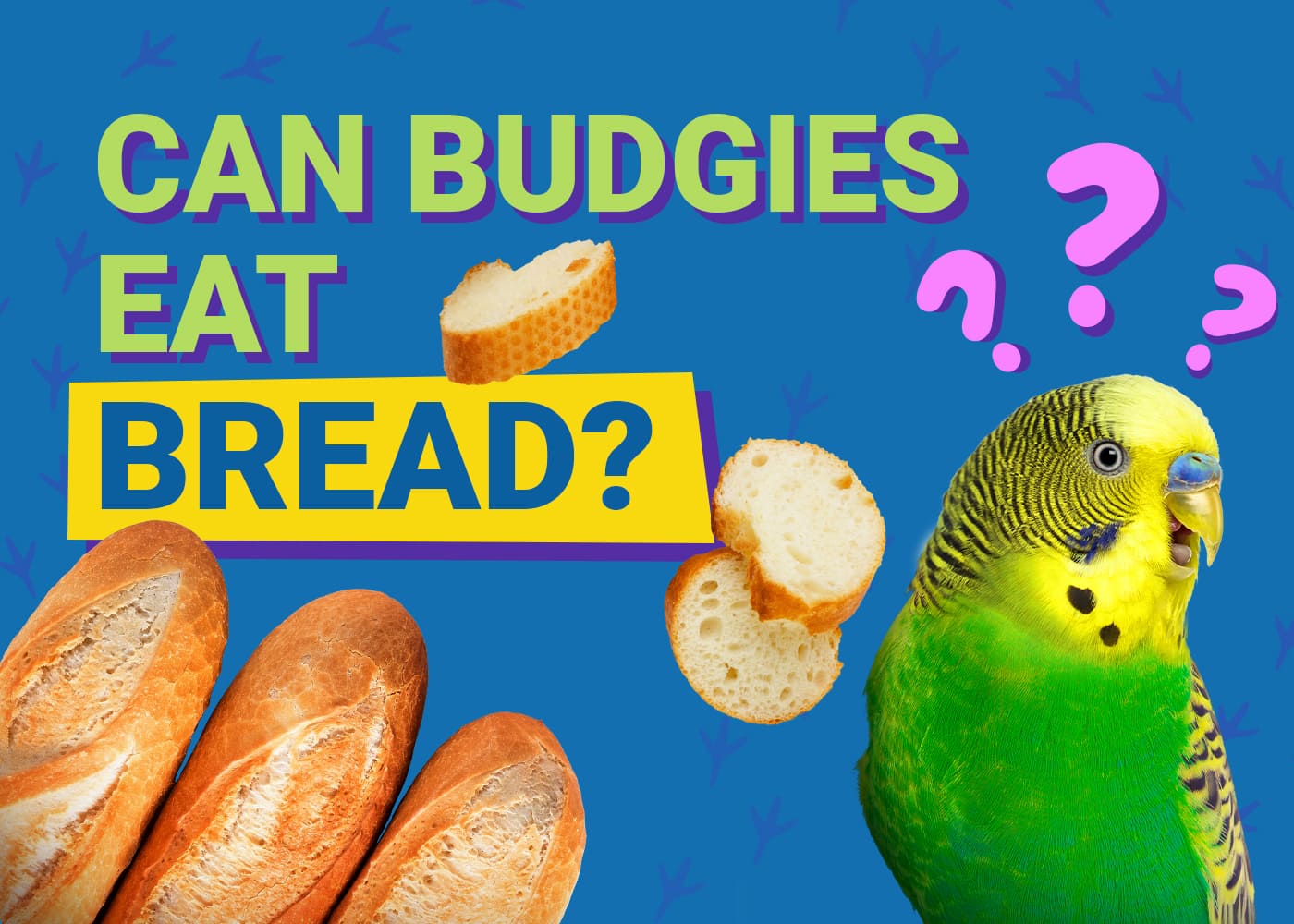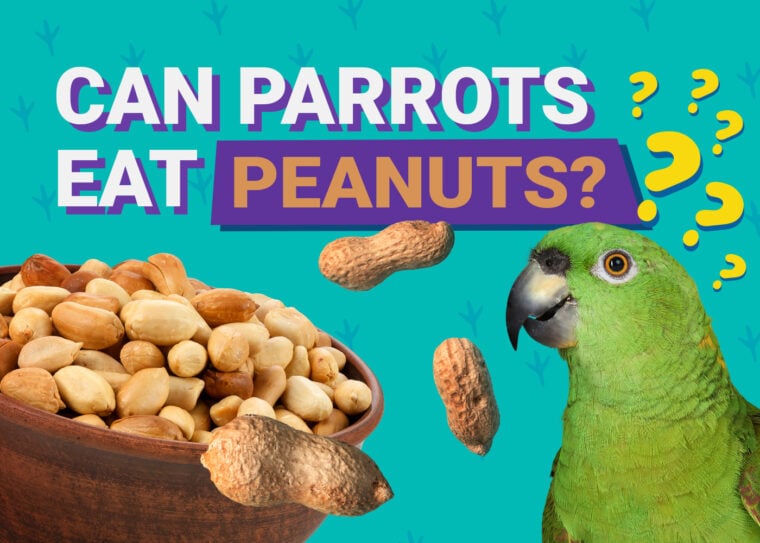
Parrots, like many birds, enjoy a variety of seeds and nuts in their diet. They will even snack on fruit and vegetables. Wild birds greatly benefit from the fats found in nuts to help them through the winter. Birds that are kept as pets also benefit from the proteins and nutrients that are found in nuts. But exactly which types of nuts can parrots eat?
Since nuts can be expensive, parrot owners may grab a bag of peanuts to give to their bird because they are not as costly as almonds or walnuts.
But can parrots eat peanuts? Yes, they can! However, there are some considerations that need to be thought about before giving your parrots peanuts of any kind. This article goes over information and tips about how to safely feed your parrot peanuts.
Peanuts In a Nutshell
Peanuts, sometimes known as groundnuts, are not nuts. Instead, they are legumes that originated from South America. In the United States, peanuts are commonly consumed as peanut butter or roasted. Peanut products are found in a variety of things, such as cakes, cookies, and sauces.
Peanut oil is also a popular fat used in cooking. Peanuts are high in protein, vitamins, and minerals, but they are also high in fat. For that reason, humans should consume peanuts in moderation even though there are health benefits.
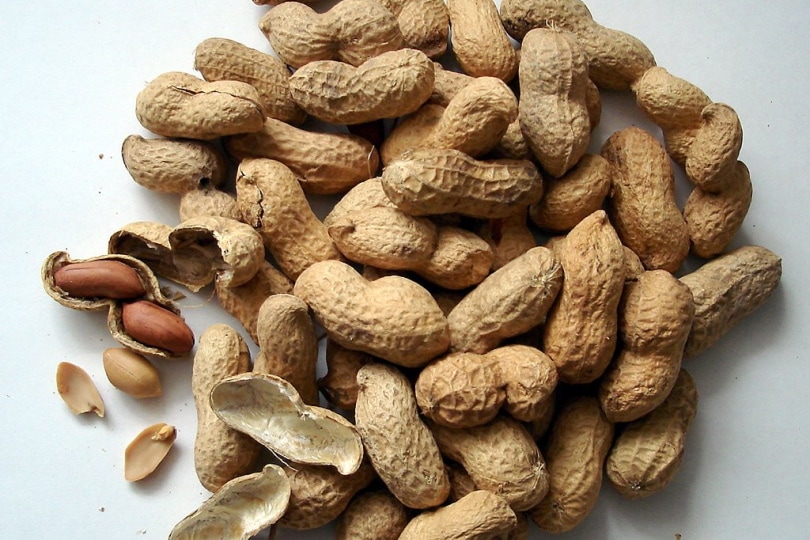
Parrots and Peanuts: Pros & Cons
Peanuts are packed with the nutritional benefits that are essential for your parrot to grow and thrive. Proteins are needed for healthy feather growth. Peanuts contain copper and magnesium, both of which help with bone growth for your parrot.
Vitamin E is also found in peanuts. This vitamin helps prevent bird diseases like muscular and skeletal dystrophy. However, because peanuts are high in fat, they should be given sparingly to your parrot.
While peanuts have plenty of nutritional benefits, parrot-owners want to be aware of aflatoxins, a mold that can grow on peanuts if not properly stored. Aflatoxin can cause liver damage in both birds and humans if ingested. If your parrot consumes peanuts with aflatoxins, it can be toxic or even fatal to your pet.
Always feed peanuts that have been properly stored so they are not exposed to moisture, which can start mold growth. Properly stored peanuts will help reduce the risk of aflatoxin growing.
Should You Choose Raw or Roasted Peanuts?
Roasted peanuts were thought to have a lesser chance of having aflatoxin growing on them, but this is not the case. If the peanuts – roasted or raw – are safe for human consumption and stored properly, it is safe to feed them to your parrot.
Some parrots like the raw peanuts, while others like the roasted kind. Get both types and see which one your parrot prefers.

Avoid Added Ingredients
You want to check the added ingredients if selecting roasted peanuts. Avoid peanuts that have added salt, sugars, or spices. Those additions are not beneficial for your parrot overall. Too much salt can lead to extreme dehydration, and a lot of sugar will negatively affect your bird’s health.
Raw peanuts usually do not have additions but always read the label to make sure.
Can Parrots Eat Peanut Shells?
Next, remove the shell from the peanuts before feeding them to your parrot. While it seems like a good idea to give your parrot a small challenge opening the nut, the shell of the peanut often has the most aflatoxin (if the mold has started to grow).
Even if your peanuts are fresh and properly sealed, remove the shell and discard it.
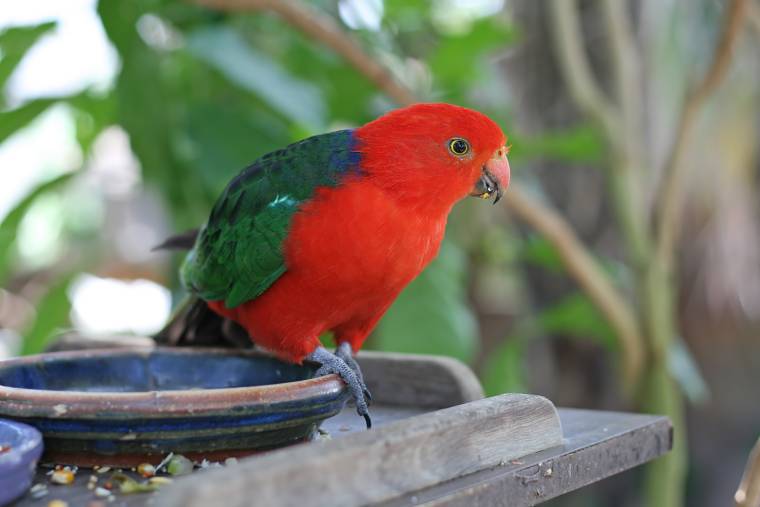
How Many Peanuts Should You Give Your Parrot?
As for the number of peanuts you should give, that depends on your parrot. For an active adult parrot, 2-3 peanuts per day is a healthy amount. If your parrot is older or less active, treat them with 2-3 peanuts every other day of the week. Avoid giving them too many peanuts or other nuts as they are high in fat.
A healthy and happy parrot will need a balanced diet of pellets, seeds, nuts, vegetables, and fruit.
What About Peanut Butter?
Yes, peanut butter is safe to feed your parrot. But the rules for safely giving peanuts to your pet must apply to peanut butter. Limit the amount of peanut butter to half a teaspoon sparingly during the week. Make sure the peanut butter is safe for human consumption, has not expired, and has been stored properly.
The FDA tests peanuts and peanut butter manufactured by major brands for aflatoxin before going to stores. Smaller companies might not do those tests, so always buy major brands of peanut butter that are natural (no added salt, sugar, or flavors).
The easiest way to give your parrot peanut butter is by spreading a small amount on a corn cob with a knife. Then sprinkle some birdseed on the peanut butter and hang it in your parrot’s cage. This will be a delicious and entertaining treat for your feathered companion.

Final Thoughts
While you can feed your parrot peanuts, many bird owners do not give their pet bird peanuts. Peanuts have proteins and nutrients that are beneficial for parrots, but people are often concerned with the risk of aflatoxins in peanuts or peanut butter. There is also the concern for added salts and sugars to peanuts. Some bird owners are also concerned about the higher fat content in these legumes.
These are all valid concerns; however, this does not mean it is impossible to feed your parrot peanuts. As a responsible bird owner, you just need to take some extra steps to ensure that the peanuts are safe to eat. Remember that high-quality peanuts in their natural state are an excellent treat for your bird. Give your parrot a peanut or two to try out. They might love them!
Next on your reading list:
Featured Image Credit: congerdesign, Pixabay


